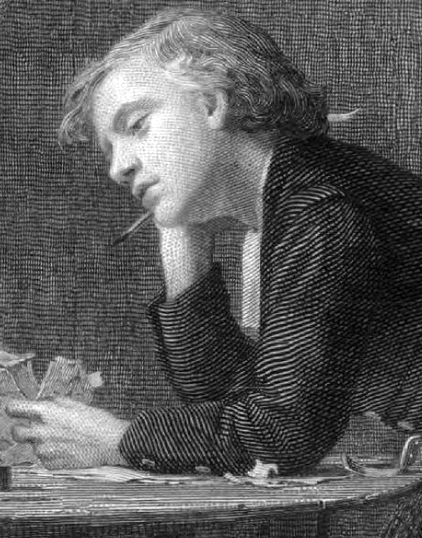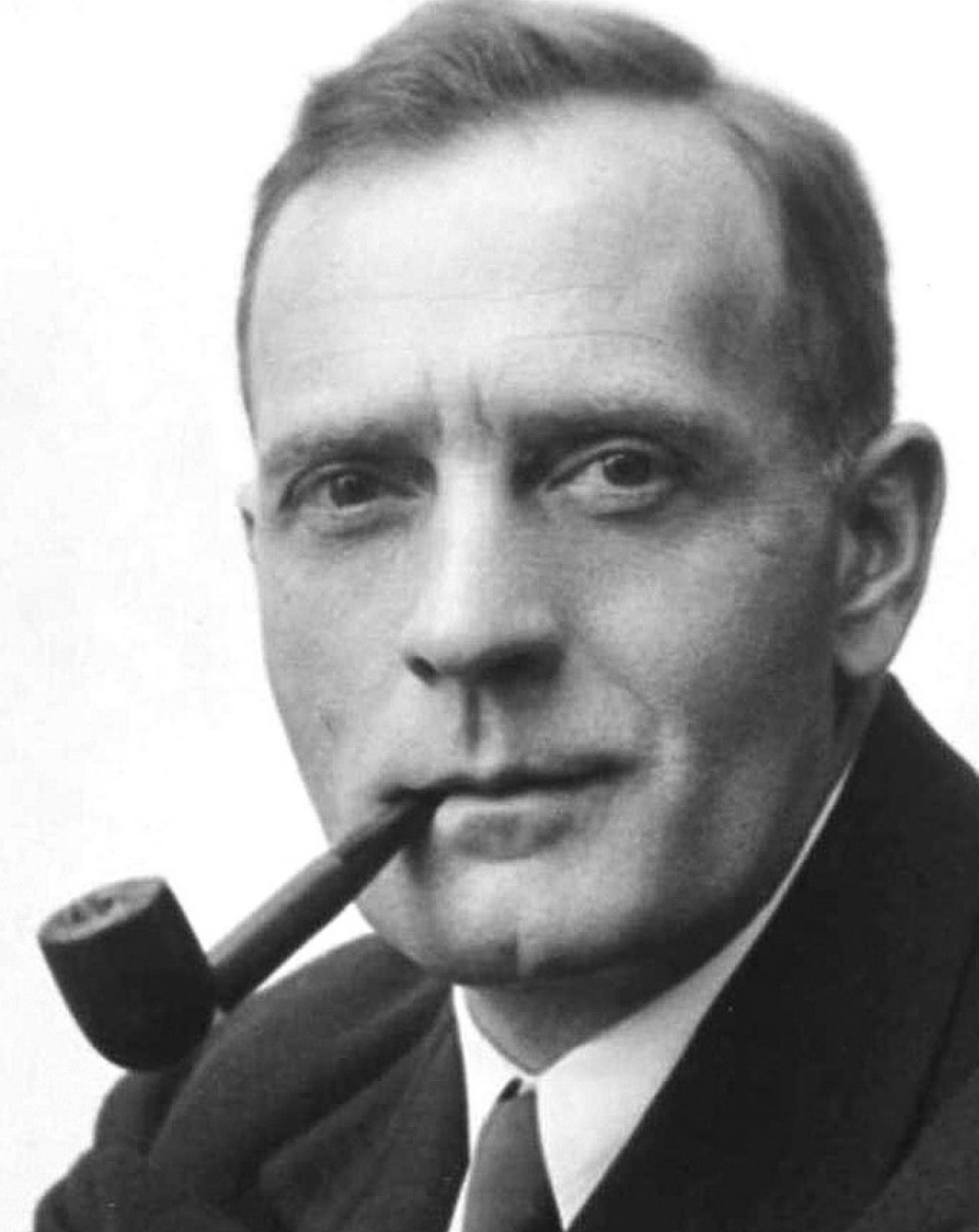November 20
Thomas Chatterton

On this date in 1752, poet Thomas Chatterton was born in Bristol, England. His father died 15 weeks after he was born. He was educated at a Dickensian charity school that taught only reading, writing, arithmetic and the cathechism. A precocious student, he was writing mature verse by age 11. Chatterton soon conceived the character of Thomas Rowley, an imaginary monk of the 15th century, and adopted the pseudonym. He sent these “Rowley poems” to Sir Horace Walpole, looking for a mentor. Walpole was initially impressed, then cut off Chatterton when he realized they were bogus.
He became unhappily indentured to an attorney, escaped the indenture and moved to London at age 17 to write. While he sold some of his works, he became a literal “starving artist.” Malnourished and despondent, he committed suicide at 17 years, 9 months by drinking arsenic in a glass of water.
He became somewhat of a literary hero after his death and was deemed the first Romantic poet in the English language by Romantic and Pre-Raphaelite poets. Keats and Coleridge each wrote a poem about him. (D. 1770)
PHOTO: “Chatterton’s Holiday Afternoon,” 1872 engraving by William Ridgway.
“Heaven send you the comforts of Christianity! I request them not, for I am no Christian.”
—Chatterton letter to George Catcott, Aug. 12, 1770, "The Works of Thomas Chatterton, Vol. I" (1803)
Edwin Hubble

On this date in 1889, astronomer Edwin Powell Hubble was born in Marshfield, Mo. Hubble, one of the most influential astronomers in history, is credited with establishing the fields of observational cosmology and extragalactic astronomy. A gifted athlete, he played basketball for the University of Chicago as an undergraduate before studying for a master’s at The Queen’s College-Oxford as one of the first Rhodes Scholars. In 1917 he received his Ph.D. in astronomy from the University of Chicago.
After serving in the Army in World War I, rising to the rank of lieutenant colonel, Hubble joined the staff of the Carnegie Institution for Science’s Mount Wilson Observatory in California, where he worked with the Hooker and then the Hale telescopes, both of which were the largest optical telescopes in the world on the dates of their respective completions.
Chief among Hubble’s discoveries are a standard classification system for galaxies and the calculation for determining the rate at which the universe is expanding, known as Hubble’s Law. In 1990 NASA launched the Hubble Space Telescope into Earth orbit. It has provided scientists with hundreds of thousands of images of the universe, leading to discoveries relating to the age of the universe, the life cycle of galaxies and stars within them and the role of dark energy in the expansion of the universe. The telescope could be operational as long as 2040. Its successor was the James Webb Space Telescope, which launched from French Guiana on Dec. 25, 2021.
Hubble struggled with religion, having been raised Christian but expressing uncertainty about the existence of God throughout his life. Several biographical accounts attest to his agnosticism. Hubble married Grace (Burke) Leib in 1924. He had a heart attack in 1949 but continued to work on a modified schedule. He died of cerebral thrombosis in San Marino, Calif. No funeral was held and his wife never revealed his burial site, if any. (D. 1953)
PHOTO: Hubble in 1931; public domain photo by Johan Hagemeyer.
“The whole thing is so much bigger than I am, and I can’t understand it. Not until the empirical resources are exhausted, need we pass on to the dreamy realms of speculation. … I am an observer, not a theoretical man.”
—Hubble, when asked about his religious beliefs, "Hubble Time" by Tom Bezzi (1987)
